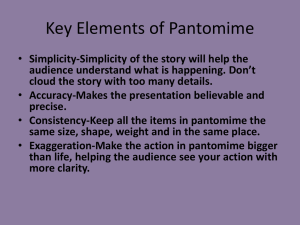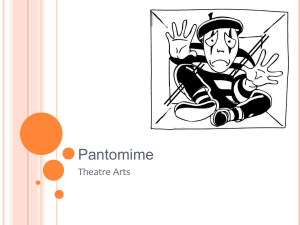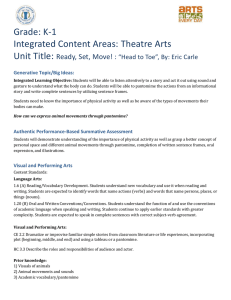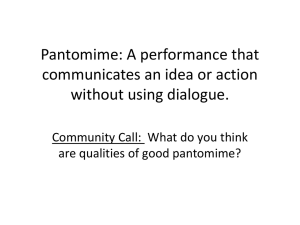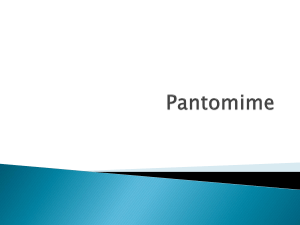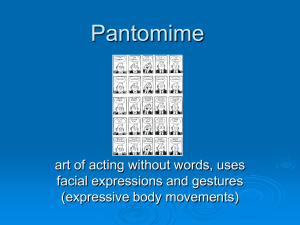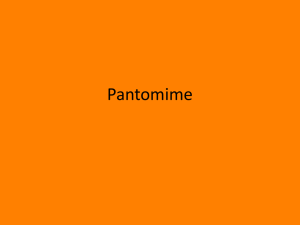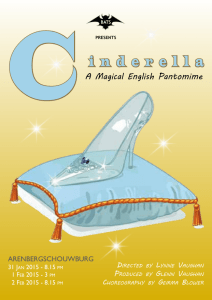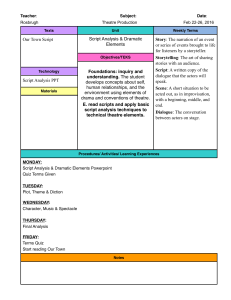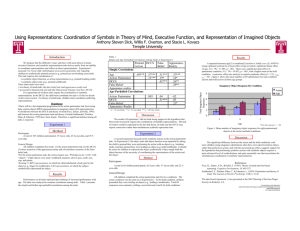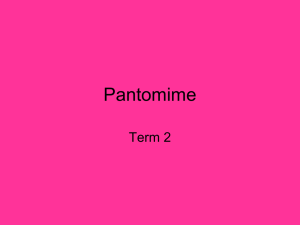Pantomime Powerpoint
advertisement
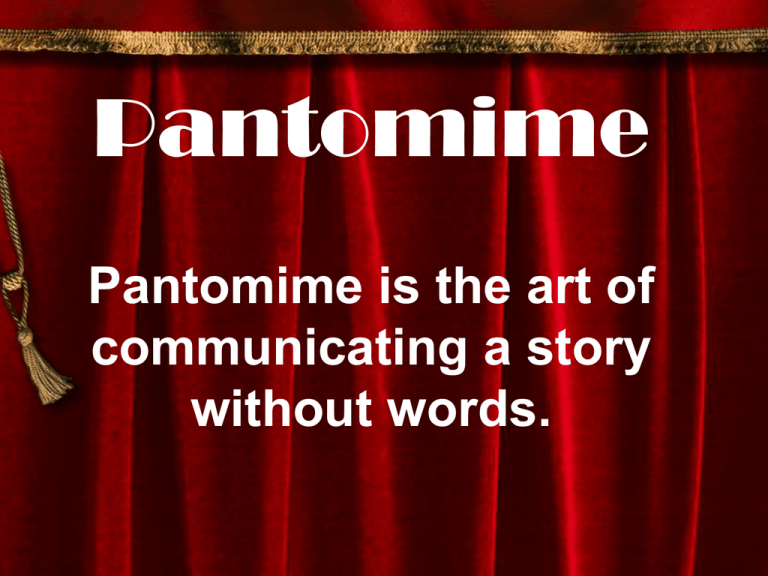
Pantomime Pantomime is the art of communicating a story without words. You’re not going to pretend you’re stuck in a box!!!! MIMING and PANTOMIMING ARE VERY DIFFERENT!!! In pantomime the performer pretends to use or see things that aren’t actually there, (by showing their size, shape and weight) in order to help communicate a story or situation. http://teachertube.com/viewVideo.php?video_id=143077 MIMING and PANTOMIMING DIFFERENces MIME * Gives the illusion of action in real life * Stylized; abstract * Does not appear normal * Conveys a theme; expresses an idea * Can use props or costume pieces * No thru story necessary PANTOMIME *Imitates actions from real life *Can be part of normal performances * Appears realistic * Conveys a specific action *No props; has imaginary objects *Must have a beginning, middle, and end—thru story You pantomime everyday!!! Everyday Gestures indicating: • • “Yes” • • “No” • • “Come here” • • “Go away,” • • “Hello” • • “Goodbye” • • “This tastes terrible” • Can you think of any more? When you reenact something for someone without the actual objects or setting: • Drink a glass of water • Pretend a bee is buzzing around your face • Lift a weight • Chop down a tree http://www.youtube.com/watch?v=jLrLNehzpb8 (video) Pantomiming Helps Actors to communicate: CHARACTER In pantomime one person can pretend to be anyone. Examples: Age (crawling, walking with a cane, etc.), Job(doctor, bus driver, teacher) Hint: Be sure to change your face, your movement and your posture to become different people. SETTING Show where you are by your actions. Examples: Brushing your teeth (bathroom), Shoveling snow (outside in winter) EMOTION The body always shows what you are feeling inside. Examples: Reactions and feelings in different situations (Scared in a haunted house) Pantomime Notes * To successfully pantomime something you must Imitate and Imagine it!!! * Make sure the settings, characters, situations, and emotions are believable!!! * To make something look realistic, you must always show the size, shape, weight, resistance, texture, placement, and condition of objects!!! Practice Time!!! Pantomime Notes continued… * The audience must be able to see your facial expressions and body movements at All times! Pantomime Notes continued… A pantomime MUST follow a solid storyline: Beginning: background info (who, what, when, where, why) Middle: Action of the story, Details, Conflict (conflicts are interesting, create action, show relationships, etc.) End: Conclusion (problem solved--can be slightly non-realistic) Pantomime Notes continued… Resistance: always make movements easy to see, sharp, crisp, and believable Consistency: always keep the characters, location, objects, and ideas the same for the whole scene Exaggerated Facial Expressions and Gestures: keep them specific and realistic, but make them more obvious Mime-it-Down-the-Alley Round one = practice using the actual object and pass it on Round two = pass the same object, but use pantomime only, no speaking! Round three = Mime-it-Down-the-Alley (person at the end of the line chooses the pantomimed object to pass along)
